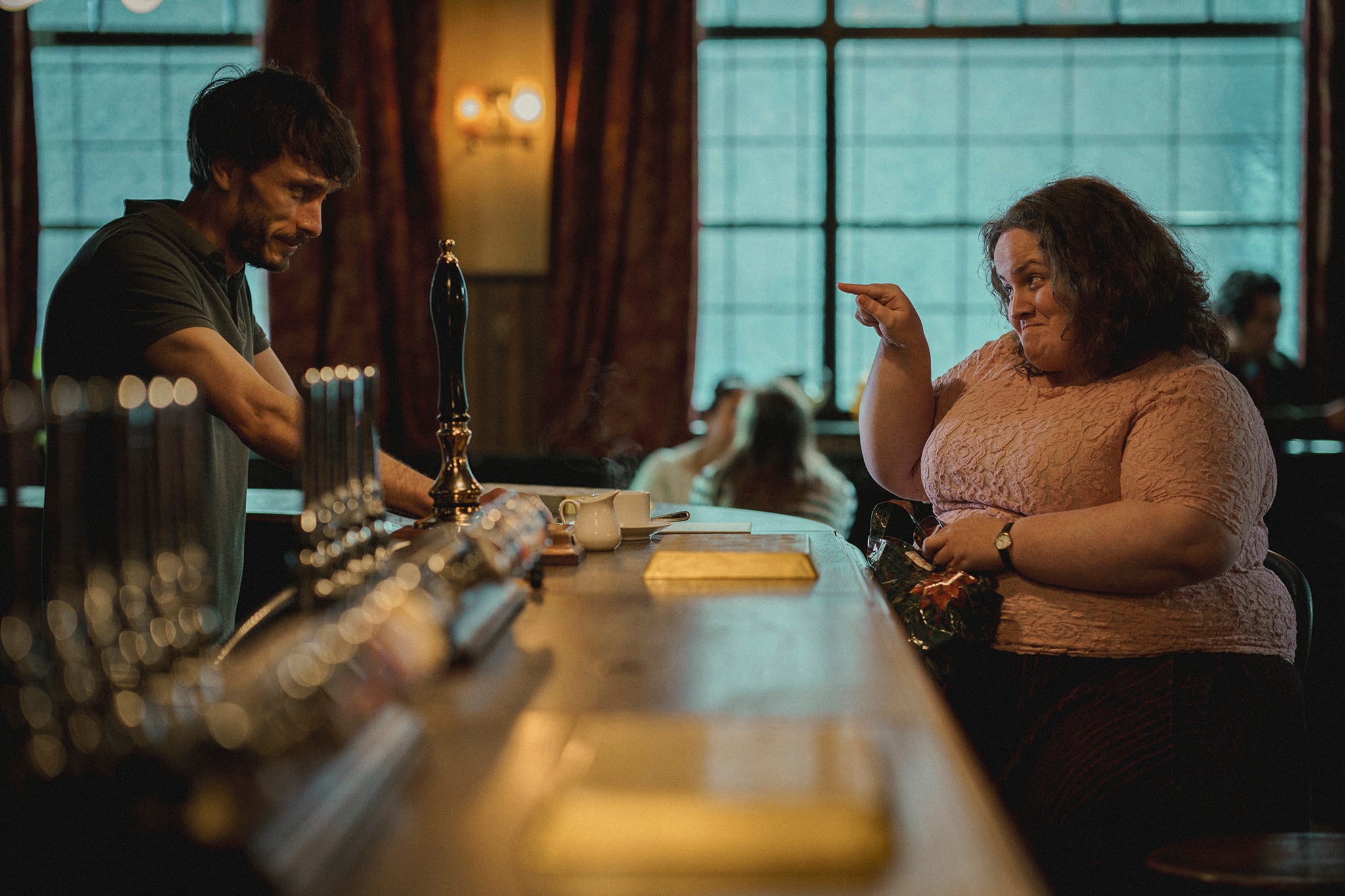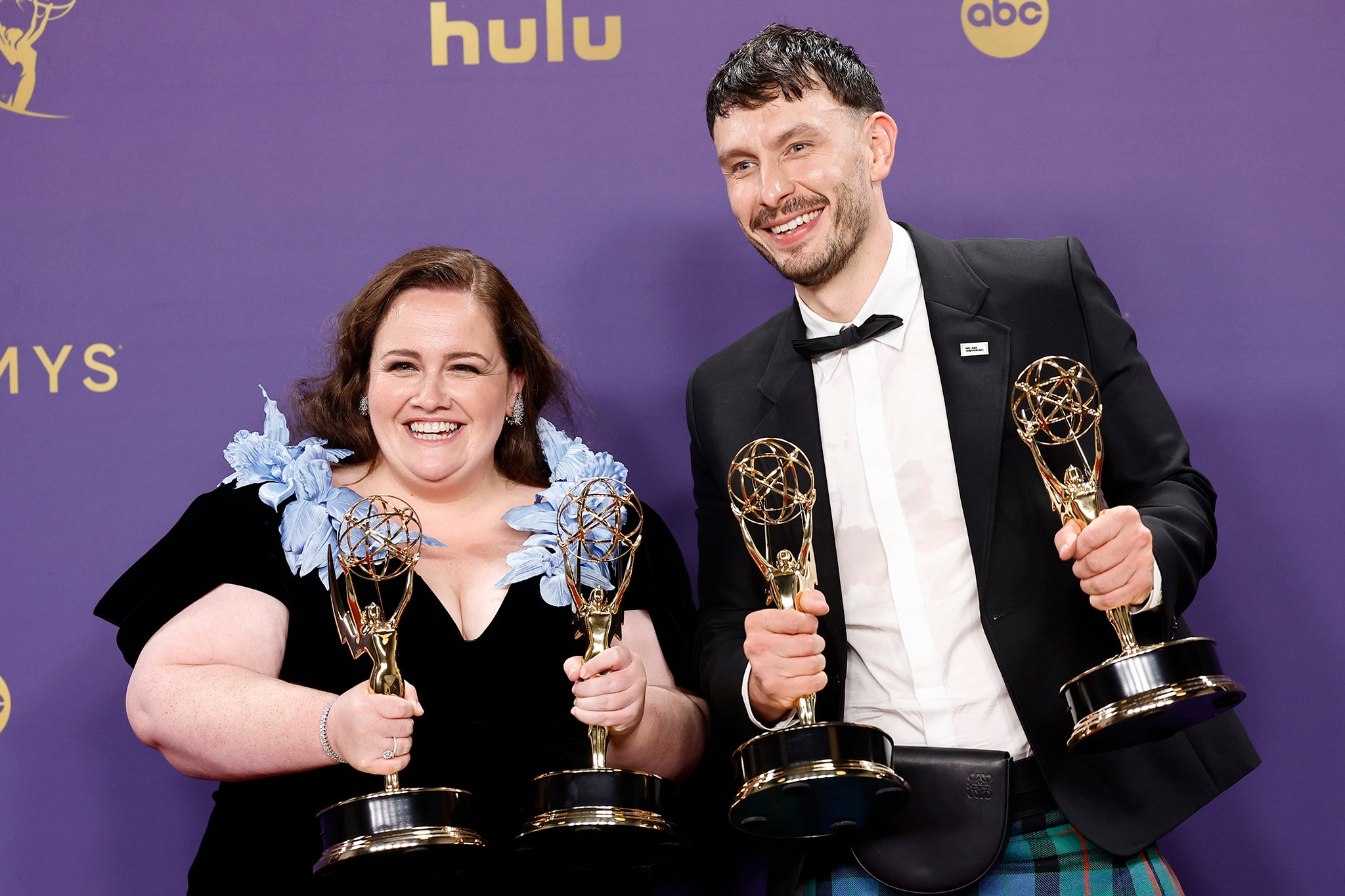Fiona Harvey’s defamation lawsuit against Netflix has been allowed to go forward after a judge ruled that the streamer’s hit series Baby Reindeer did not match up to its billing as a “true story”.
The series, which follows a struggling comic Donny Dunn (Richard Gadd) as he is relentlessly harassed and stalked by a woman named Martha Scott (played by Jessica Gunning) for more than four years, was embroiled in controversy when internet sleuths unearthed the “real Martha” as Scottish lawyer Harvey.
Harvey responded by filing a defamation lawsuit against Netflix in which she alleged that the story is inaccurate and falsely depicted her as a convicted criminal who spent time in prison for stalking.
In July, Netflix filed a motion to throw out the lawsuit, with the show’s creator and star Gadd revealing that Harvey had stalked him when he worked at a London pub, and had sent him thousands of disturbing emails and voicemail messages.
In a ruling on Friday, Judge Gary Klausner stated that the series opens with the line “This is a true story,” which invites the viewer to take what is presented to them as fact. However, Judge Klausner found that Martha’s behaviour in the show is depicted as much worse than what Harvey was accused of in real life.
In the series, Martha pleads guilty to stalking and harassment and is sent to jail. However, Gadd reported Harvey to the police and she received a warning but was not criminally prosecuted as the series suggests.
“There is a major difference between stalking and being convicted of stalking in a court of law,” the judge wrote. “Likewise, there are major differences between inappropriate touching and sexual assault, as well as between shoving and gouging another’s eyes. While plaintiff’s purported actions are reprehensible, defendants’ statements are of a worse degree and could produce a different effect in the mind of a viewer.”

The court “disagreed” with Netflix’s argument that the similarities between the character Martha and Harvey are “so broad that a reasonable person would not have been able to identify her”.
Instead, the judge said: “Rather, Martha and Plaintiff have specific similarities that few others could claim to share. Specifically, Martha and Plaintiff are both Scottish lawyers living in London, twenty years older than Donny/Gadd, accused of stalking a lawyer in a newspaper article, who communicated with Donny/Gadd on social media.”

Watch Apple TV+ free for 7 days
New subscribers only. £8.99/mo. after free trial. Plan auto-renews until cancelled

Watch Apple TV+ free for 7 days
New subscribers only. £8.99/mo. after free trial. Plan auto-renews until cancelled
Harvey was never named on the show, but her identity was quickly revealed by online sleuths who followed digital breadcrumbs from clues in the series, like searching the wording of specific tweets depicted in the series online – and finding Harvey’s account.
A federal judge has set a 6 May start date for Harvey’s action against Netflix, and proceedings are estimated to last about two weeks.
The series is billed as a “true story,” which Harvey argues in her $170m (£132m) lawsuit is “the biggest lie in television history”.

According to documents seen by The Independent, Harvey has accused Netflix of defamation, negligence, intentional infliction of emotional distress, and violations of her right to privacy among other allegations.
While Gadd isn’t named as a defendant in the lawsuit, he filed a response in federal court defending a motion to dismiss Harvey’s claim in a declaration dated 28 July.
“I never intended the series to identify any real person as Martha Scott, including Harvey,” he wrote in the 21-page document. “Martha Scott is not Fiona Harvey. Like all characters in the series, Martha is a fictional character with fictional personality traits that are very different than Harvey’s.”

A Netflix spokesperson said at the time of the lawsuit’s filing: “We intend to defend this matter vigorously and to stand by Richard Gadd’s right to tell his story.”
Despite the controversy surrounding the series, Gadd’s show won four Emmy awards and 11 nominations at the 2024 ceremony earlier this month.
The Scottish comedian used his acceptance speech to encourage “struggling” abuse survivors to “keep going,” promising them that “things will be OK”.

